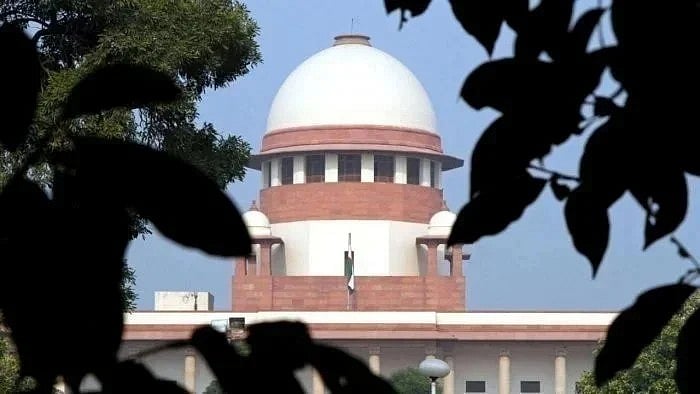
The Supreme Court of India.
Credit: PTI File Photo
New Delhi: The Supreme Court has said that a greater probative value has to be assigned to a pre-independence document in case of claims to the Scheduled Tribe status.
It also said the affinity test cannot be taken as an essential part in the process of determination of correctness of a caste or tribe claim in every case.
A bench of Chief Justice of India B R Gavai and Justices Satish Chandra Sharma and K Vinod Chandran allowed an appeal by Yogesh Madhav Makalwad against the Bombay High Court's judgment.
In its judgment on August 12, 2025, the court declared the appellant belonged to the Koli Mahadev Tribe and directed the scrutiny committee to issue caste validity certificate to him within a period of six weeks.
Giving credence to the pre-independence document which certified that the appellant’s grandfather, Jalba Malba Makalwad belonged to Koli Mahadev Tribe, the bench said, "We are of the considered opinion that a greater probative value ought to have been given to the said document. However, on the basis of presumptions and assumptions, the said document has been disbelieved.''
In 2019, the appellant applied for validation of the caste certificate as he secured 334 out of 720 marks in NEET-UG examination and became eligible for admission to a medical college.
He filed a writ petition in the high court but the caste scrutiny committee invalidated his claim and that of his father discarding various documents.
The HC upheld the order of June 24, 2019 passed by the scrutiny committee confiscating and invalidating the caste claim of the appellant.
The appellant's counsel submitted the scrutiny committee as well as the high court has grossly erred in dismissing his claim of the appellant as the school admission and leaving extract of his grandfather, which was recorded on October 10, 1943 clearly indicating the caste as Koli Mahadev. The document being pre-independence should have greater probative value.
The state counsel, on the opposite, contended so-called document of 1943 is not free from doubt as the opinion on handwriting with regard to interpolation inconclusive. He also said the appellant has failed the affinity test. The appellant was not in a position to depose before the scrutiny committee with regard to the customs and traditions followed by the Koli Mahadev Tribe, as such, on this ground also the claim has been rightly invalidated.
The court, however, said the affinity test is not a litmus test to decide the caste claim.
"Wth the change in times, migration and modernisation, the joining of people from the tribal population in the mainstream of the society, the fact that they are not in a position to recollect the anthropological and ethnological traits, deity, rituals, customs, mode of marriage, death ceremonies, method of burial of dead bodies, etc, of their tribe cannot be solely a ground ipso facto to deny the said claim,'' the bench said.
With regard to alleged interpolation in the record of grandfather, the bench said, "We have examined the said document with a magnifying glass. It is clear to us that the words Koli Mahadev written in the entry are in the same ink and in the same handwriting. Therefore, we find that there could be no scope for interpolation in the said entry."
